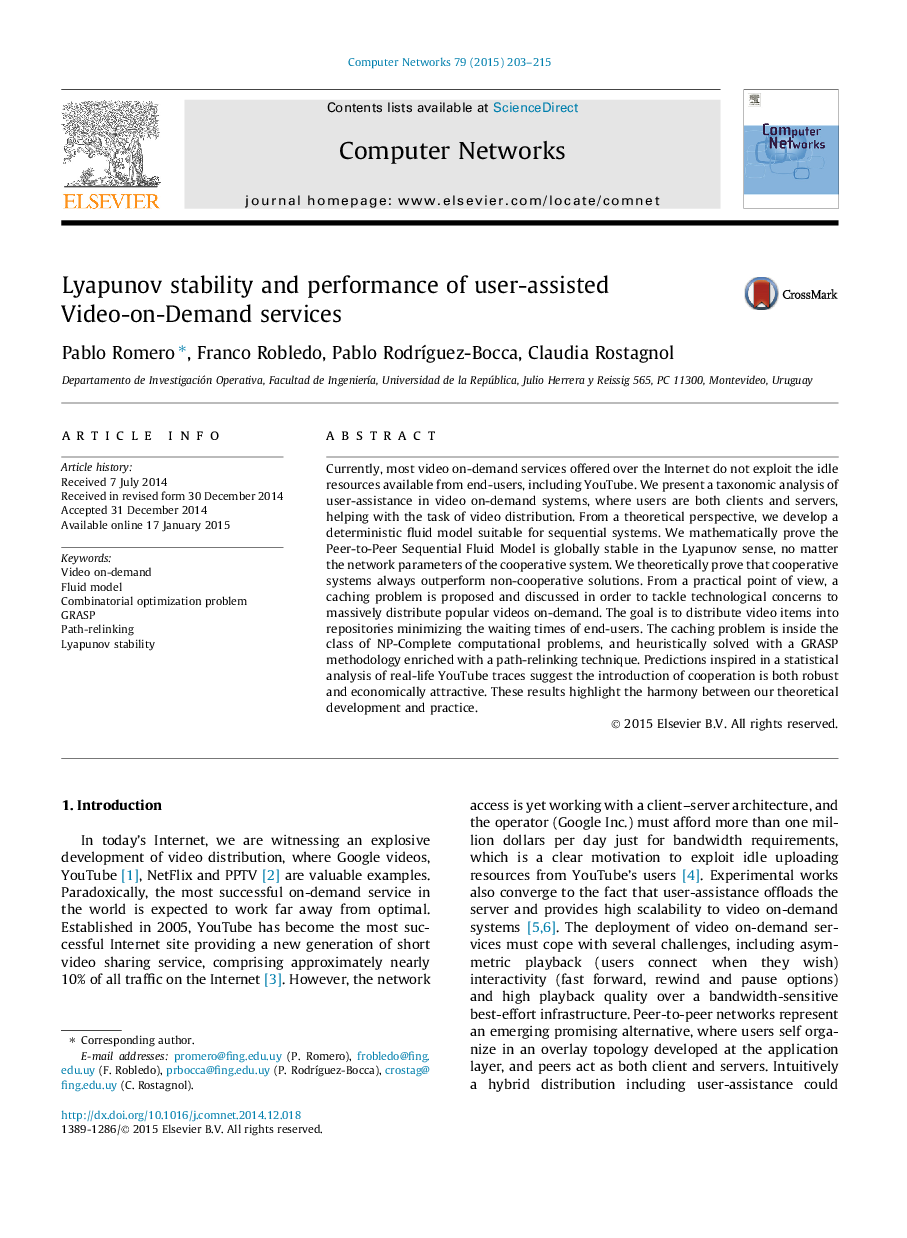| کد مقاله | کد نشریه | سال انتشار | مقاله انگلیسی | نسخه تمام متن |
|---|---|---|---|---|
| 450752 | 694145 | 2015 | 13 صفحه PDF | دانلود رایگان |

Currently, most video on-demand services offered over the Internet do not exploit the idle resources available from end-users, including YouTube. We present a taxonomic analysis of user-assistance in video on-demand systems, where users are both clients and servers, helping with the task of video distribution. From a theoretical perspective, we develop a deterministic fluid model suitable for sequential systems. We mathematically prove the Peer-to-Peer Sequential Fluid Model is globally stable in the Lyapunov sense, no matter the network parameters of the cooperative system. We theoretically prove that cooperative systems always outperform non-cooperative solutions. From a practical point of view, a caching problem is proposed and discussed in order to tackle technological concerns to massively distribute popular videos on-demand. The goal is to distribute video items into repositories minimizing the waiting times of end-users. The caching problem is inside the class of NP-Complete computational problems, and heuristically solved with a GRASP methodology enriched with a path-relinking technique. Predictions inspired in a statistical analysis of real-life YouTube traces suggest the introduction of cooperation is both robust and economically attractive. These results highlight the harmony between our theoretical development and practice.
Journal: Computer Networks - Volume 79, 14 March 2015, Pages 203–215